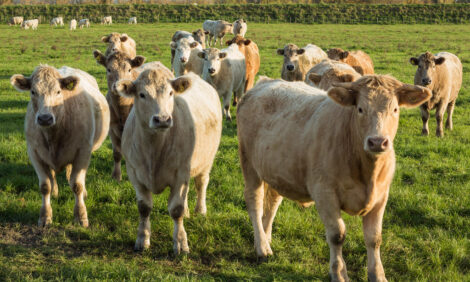



Scotland's Bluetongue Vaccination Plan Mapped Out
UK - NFU Scotland has welcomed the announcement that a compulsory vaccination programme will be launched this winter to protect Scotland’s livestock industry against the spread of bluetongue virus.At a meeting of industry stakeholders, the Cabinet Secretary for Rural Affairs, Richard Lochhead announced that vaccination is likely to begin in November but timing will depend on factors such as temperature and the prevalence of midges, which spread the disease among animals.
It will see all cattle and sheep in Scotland, almost seven million animals, compulsory vaccinated against the disease. Other susceptible species, such as goats, deer and camelids will be vaccinated on a voluntary basis.
The Scottish Government has agreed to pay half the manufacturing costs of the vaccine (approximately £2.5 million) in the first year with remainder met by the industry.
Speaking after the stakeholder meeting, NFU Scotland Vice-president Nigel Miller said:
“The road ahead for Scottish producers to protect their livestock from the devastating affects of bluetongue disease has now been mapped out.
“We accept the decision that vaccination will go ahead this winter, we welcome the Scottish Government’s financial contribution to that cost and we agree with the Scottish Government's decision to make vaccination compulsory.
“The voluntary uptake of vaccine in some parts of England, as revealed last week, is disappointing. In addition, the number of infected animals continuing to be imported into England shows the huge threat that bluetongue poses on mainland Europe. It is wholly appropriate that Scotland should choose to protect its livestock in the coming months as, unfortunately, there is a very real danger of bluetongue persisting south of the Border and in parts of Europe for some years to come.
“There is absolutely no room for complacency. Those who continue to import animals from Europe into the UK are showing a reckless disregard for their fellow producers. The disease is rife in Europe, they are dealing with two different strains of the disease and control strategies are not working. Imported animals can no longer be guaranteed free of disease, despite being warranted as such, and as a result all imports of susceptible livestock should be suspended now until we reach the vector free period and Scotland is in a position to properly protect its stock.”


